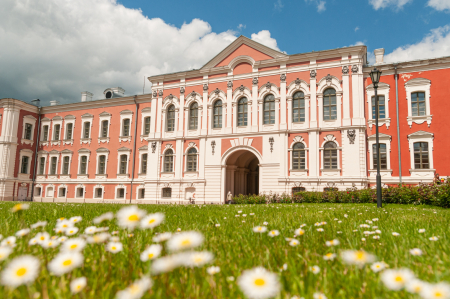LBTU's Rising Reputation and Achievements!
In 2023, the overall reputation of the University of Latvia's Life Sciences and Technology University (LBTU) has significantly increased, securing the second highest reputation indicator in the higher education sector in Latvia. Latvian society places long-term trust in the university and highly values the quality of education it provides. These findings are derived from the Latvian Higher Education Reputation Study conducted by the Kantar Group, which took place this spring for the seventh consecutive year and included an evaluation of the situation at nine major universities.
In the past year, LBTU underwent a rebranding process that included changes in the university's name, strategy, and visual identity. These changes have impacted overall recognition and various reputation indicators. According to the results of the reputation study, the university's recognition has consistently remained very high over the past seven years, with 91-94% of individuals aged 15 to 60 being aware of the university in Jelgava. Although there has been a slight decrease of three percentage points this year, it still remains significantly higher than the average indicator in the higher education sector.
Meanwhile, LBTU's reputation has experienced an unprecedented rise and is rated as moderately high with a score of 67. When comparing it with the overall reputation of the higher education sector in Latvia, LBTU's reputation level is higher than the average indicator among the general population, which has experienced a decline over the year. Additionally, this year, LBTU's reputation has significantly increased among the target audience of young people. The reputation score has risen from 56 points in 2022 to 62 points this year. Therefore, LBTU's reputation is higher than the average indicator among the overall target audience of young people, which stands at 56 points.
"Reputation reflects the university's attractiveness in the eyes of the public and their expectations towards its overall operations, services provided, and achievements. We can see that people have noticed and appreciated what we have accomplished and recognize the university's potential. Moreover, there are objective reasons for the increase in reputation – our university graduates have some of the highest employment rates in Latvia, and Jelgava has become a successful starting point for thousands of young professionals in almost all sectors of the economy," says LBTU Rector Irina Pilvere.
Similar to the entire study period, long-term trust in the university remains a key factor in shaping LBTU's reputation this year as well. Competence, or the rational dimension of reputation, continues to be a strong aspect of LBTU, as observed before. Moreover, over the course of the year, the evaluation of LBTU's reputation attractiveness among the public has significantly increased. Both attractiveness and competence dimensions are rated significantly higher among the general population compared to all measured universities combined, while among young people, the evaluations of both dimensions align with the average ratings in the field.
Interestingly, the proportion of positive comments about LBTU has grown significantly over the year. Nearly 87% of the public spontaneously provide positive comments about LBTU, representing an overwhelming majority. Most commonly, residents mention LBTU's overall image/reputation and the services/activities provided. Furthermore, the proportion of positive feedback specifically regarding the services/activities offered by LBTU has notably increased over the year.
The Latvian Higher Education Reputation Study is organized and conducted by Kantar, a market, social, and media research company, utilizing the TRI*M™ Corporate Reputation method owned by the Kantar Group, which is internationally approved. The survey of residents is conducted annually in the spring, encompassing representatives of various age groups and adhering to the ESOMAR code and standards for market and social research. A similar study on university reputation is also organized in Estonia.
